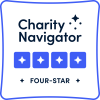By Renz Balatgas

I remember my first day sitting in the third-floor conference room of the Motor House, looking around at smiling faces and eager eyes. It was September, the first day of my fellowship with the Urban Arts Leadership Program and I had not met any other fellows in my cohort yet. I felt a wave of many emotions from excited, nervous, ecstatic and proud. Kibibi Ajanku, the head of the program stood in the front of the room smiling from ear-to-ear. She greeted all the new fellows, and it wasn’t long until her energy captured our attention. She made it clear that the fellowship would be intense, urgent and important. The fellowship would require our full participation and engagement for the entire program. We were preparing ourselves to become the leaders of the future, and Kibibi wanted us to understand that it would take serious dedication. Kibibi was not joking.
Our first four months were quite literally intense. On our first meeting, we were thrusted into a discussion about subversive inequity and all its different manifestations in the past and how they appear in the present. We attended the memorial for the great Dick Gregory and saw history’s great black activists, their children and their grandchildren under one roof celebrating the legacy of one of history’s most important activists. We had workshops on professional practice, and were visited by several leaders from the cultural arts community. Entrepreneurs, writers, activists, painters, arts administrators, and executive directors of cultural programs and institutions alike came to speak with us as guests. We created a documentary, curated an art exhibition and participated in community engagement projects. It would take a whole novel to describe all the ways in which we were immersed into the world of leadership in the crts & culture sector.
In January, the intensives were over. I was matched with the Clarice Smith Center for Performing Arts at the University of Maryland in College Park to fulfil the second part of the fellowship. Erica the associate director was there to mentor me and pick up where Kibibi left off. I was finally ready to use what I learned in my first four months of workshops. Erica worked closely with me on what it means to manage projects, and navigate the world of arts administration. I attended meetings, wrote draft proposals, and pitched my ideas to staff members, and community leaders.
Two months into my partnership with the Clarice, Kibibi called me. She was offering a unique opportunity, and at the time I almost couldn’t believe it. Janica Alston, the program assistant for GBCA accepted a job as a program manager for the YMCA. Kibibi wanted me to take Janica’s place and work part-time while I finished my fellowship. After graduation, I would transition into full-time. I was honored. Janica participated in the program the year before me, and to hear her good news was inspiring. I accepted Kibibi’s offer and prepared myself for what would become the next chapter of my goal of becoming a leader in the cultural arts community.
I have been the Program Assistant with the GBCA for two months. My first project was recruitment for the next year’s fellowship. Kibibi swiftly took me under her wing. To be trusted as a new Program Assistant gave me confidence in my future and I can only thank Kibibi and the UALP for that. I still think about the rigor and intensity of the first few months of my fellowship. Arts Administration is a serious responsibility. In two months I’ll be graduating from the UALP. I’ll be fully immersed in the GBCA family. And while Graduation is still two months away, I am starting to feel excited, nervous, ecstatic and proud.
Apply to become an Urban Arts Fellow now!



